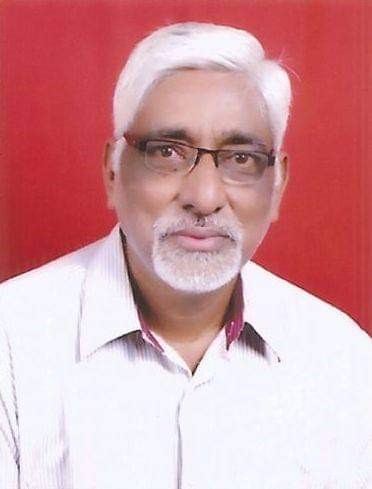27

 The recent developments surrounding Mohan Bhagwat, the chief of the Rashtriya Swayamsevak Sangh (RSS), have sparked significant debate within the Hindu community. Accusations of callousness towards Hindu interests directed at Bhagwat, a prominent figure in Hindu nationalism, highlight a troubling internal conflict. This situation raises questions about the motivations of Hindu fundamentalists, suggesting that their primary goal may be the pursuit of power rather than genuine concern for the community's welfare.
The recent developments surrounding Mohan Bhagwat, the chief of the Rashtriya Swayamsevak Sangh (RSS), have sparked significant debate within the Hindu community. Accusations of callousness towards Hindu interests directed at Bhagwat, a prominent figure in Hindu nationalism, highlight a troubling internal conflict. This situation raises questions about the motivations of Hindu fundamentalists, suggesting that their primary goal may be the pursuit of power rather than genuine concern for the community's welfare.
One tactic employed by these fundamentalists to maintain their influence is the perpetuation of communal tensions, particularly against minorities like Muslims. By fostering narratives of victimhood and cultural superiority, they distract from the pressing need for reform within Hindu society. Historical figures such as Swami Vivekananda, Raja Ram Mohan Roy, Mahatma Gandhi, and Maharishi Arvind have championed social progress and reform, yet contemporary leaders seem more focused on attacking minorities than addressing the issues within their own community.
It is crucial for those who consider themselves defenders of Hinduism to reflect on the state of their own society. Are they aware of the deep-rooted caste inequalities that persist, where some individuals are deemed superior without justification? The RSS once promoted the idea that caste should not define a Hindu, yet many remain silent when Dalits are barred from temples or when women are deemed impure due to natural biological processes.
Furthermore, the disparity in charitable actions raises ethical questions. Wealthy Hindus often prioritize rituals and donations to well-fed priests while neglecting the plight of impoverished members of their own community. The stark contrast between the lavish spending on temple renovations and the suffering of homeless Hindus during winter is alarming. Instances of violence against Dalits, including horrific acts of sexual assault, should provoke outrage, yet many remain indifferent.
The treatment of Muslims within the Hindu community also warrants reflection. Lynching incidents based on unfounded accusations of beef consumption contradict the principles of compassion and non-violence that Hinduism espouses. The tragic case of Stan Smith's children, who were killed by Hindu extremists, and the subsequent glorification of their murderers, should evoke shame rather than pride. Similarly, the release of those responsible for the rape of Bilkis Banoo, celebrated as heroes, reflects a disturbing moral decline.
Moreover, the exploitation of vulnerable individuals during crises, such as the COVID-19 pandemic, where essential goods were sold at exorbitant prices, highlights a troubling lack of empathy. The silence of those who claim to champion Hindu values in the face of such injustices is deeply concerning.
As an average individual born into a Hindu family, I feel a profound sense of shame regarding the actions of some within my community. If self-proclaimed defenders of Hinduism choose to ignore these wrongdoings, they inadvertently endorse them. It is imperative that they address the issues within their own ranks before casting judgment on others. Only by confronting these internal challenges can the Hindu community hope to foster a more just and equitable society.
**************


















































































































































































































































































































































































































































































































































































































































































































































































































































































































































































































































































































































































































































































































































































































































































































































































































































































